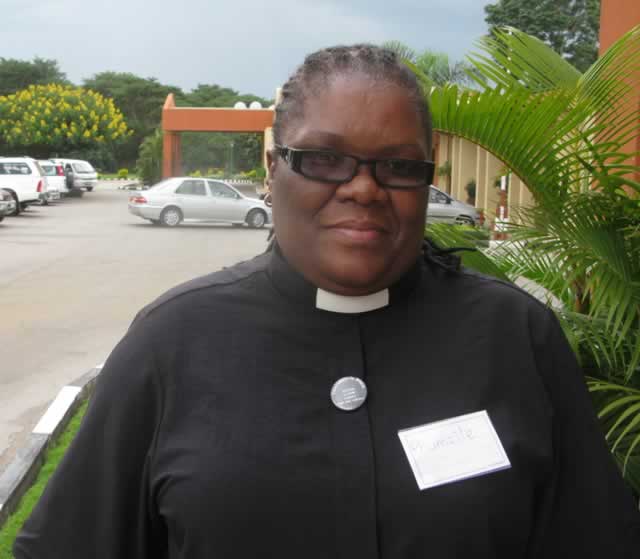Take your medicine religiously
Many urbanites have a problem with constipation due to their constant consumption of refined foods.
Homegrown rice is nutritious especially when cooked in peanut butter.
Traditional vegetables from nyevhe, muriwo wenyemba, pumpkin leaves and derere are also a good source of vitamins. Rapoko and sorghum also have a lot of roughage and should be used in making porridge or sadza as an alternative. I have highlighted this because last week I lost a “child” I had got to know. The girl who was born HIV positive had turned 18.
She had grown up as a weakling, but by the grace of God had soldiered on. She had lost her parents. She took an HIV test two years ago. Her worst fears were confirmed.
The girl, who I talked to on the phone a month prior to her death in Chinhoyi, was well informed and was a peer educator in her community. I could safely say lack of adherence to her medication and the wrong diet contributed to her illness and eventual death.
The girl, whom I will safely call Mary, said she had always been of poor health and feared that she could be HIV positive.
“I do not remember my father. He died when I was young. I lost my mother when I was eight years old. She was so ill. I vividly remember that. She wasted away so much and had a running stomach. Then we were living with my grandparents in Banket. We went from shrine to shrine in search of treatment,” said Mary.
She said it was painful because she prayed so hard that her mother would live.
“In spite of my prayers my mother died. I then lived with my grandparents who loved me. They sent me to school, but I would miss school so often as I got ill now and again,” she said.
Mary said some pupils at school taunted her that she had “Aids” too since her parents had died of Aids.
“I learnt to live with it. It was by my faith that I finished O-Level in 2010. In that same year I had the courage to get tested for HIV and my worst fears were confirmed,” she said.
“At school I had been a peer educator so I accepted my status. Even grown-up relatives whispered that I had the disease. My aunt would not even allow me to touch her children,” she said.
I thought we were winning the battle as Mary spoke with a conviction and said she was now talking openly about her status and empowering her relatives and the community.
“I have asked sick and healthy people to get tested. I had a cousin who I suspected to have been born in the same status as me. His parents had both died and it appears they had been ill, very ill as had my parents. He had the same symptoms as me. I encouraged him to get tested. He was scared and I took him along. He tested HIV positive and he was counselled and put on ART. Today, he is well and is an active member of our support group,” she said.
Mary was a youth leader of a support group in her community, but I do not know where she missed the single piece in the jigsaw puzzle.
I last talked to her after she was discharged from Chinhoyi Hospital. She kept vomiting and had a running stomach. One of her uncles asked me if it was wise to get her to live at his home in Chitungwiza for some time. I agreed that as a good idea since she would be nearer to me and I could have a one on one talk with her.
I referred the uncle to The Centre, in Harare where he was given advice on correct nutrition by Bennette Jabangwe.
The uncle said he found it useful as Mary had been eating the wrong foods along.
Within a week of the correct diet, the vomiting and running stomach had stopped.
Southern Africa HIV/Aids Information Dissemination Service in their manual “Eating Healthy, Staying Positive” say starchy foods should make up the biggest part of a meal.
“These foods supply lots of energy and some protein. Whole grain starches are preferred because they contain some vitamins and minerals. Grains like maize, wheat, millet, sorghum, rice, and barley and tubers like potato, sweet potato and cassava are recommended,” reads the manual.
“Legumes or pulses like beans, peas, lentils and nuts provide the body with proteins needed to build and repair the body and build strong muscles. They are also good sources of vitamins and minerals.
Proteins help to keep the immune system active. Legumes or nuts combined with whole grains provide complete protein to replace meat if it is not available.
“Eat plenty of vegetables and fruits everyday. Green leafy vegetables such as pumpkin leaves, lettuce, cabbage, pumpkin, carrot, rape, tomato, green beans are good for the body to recover.
“Mango, orange, guava, banana, marula, mulberries, mazhanje, baobab fruits and many locally available fruits are good,” says the manual.
If one is HIV positive, good nutrition is important.
Food cannot cure or treat HIV infection, but can improve fitness and quality of life.
If one has diarrhoea, the body may not be able to absorb the nutrients needed from the food one eats. This was evident in Mary, who was very weak. But after a few days on a diet of unrefined food Mary could even walk without help. She was now eating in small amounts. I asked her if she was taking her medication correctly to which she replied: “Sometimes.”
“Sometimes I adhere to my regime, but at times I miss taking my medication. I ask myself why me. What wrong did I commit to have to take tablets everyday so at times I just throw the tablets down the drain without my grandmother noticing,” she said.
Inspite of all the knowledge Mary had, she still failed to accept that it was not her fault that she was born HIV positive. I assured her and she promised to adhere.
She had a bright future, with six passes at O- Level she planned on going to nursing school which I applauded.
She had said that her passion would be adolescence and HIV and I patted on the back for that.
I was shocked to find out that in a month — she could miss a week’s uptake — she became ill. Drug resistance set in and even if she continued to take the medication it was no longer effective.
I pointed out in simple terms to her, that just as we add yeast to flour in baking, when the bread rises it has to be baked at the right time. Waiting anytime longer would see the bread collapsing. So in her case, the ART that was not adhered to will no longer work hence the failing health she experienced. She seemed to have got it. I intended to take her for further counselling when she got better.
With positive living one needs to have a person who monitors their medication uptake. In Mary’s case her grandmother assumed she was taking her medication as recommended when she was not.
Mary’s uncle passed through my workplace informing me that one of the uncles on the girl’s maternal side had come to take the girl away. He was disturbed because Mary was getting better. The maternal uncle believed this was spiritual since they had not had any ritual on Mary’s mother.
“The maternal uncle came to pick the girl up. He said they were going to have some rituals and from there she would be cleansed. I could not stop him so he left with the girl yesterday,” said the uncle.
My heart sank. What spiritual or ritual was required on a girl who was born HIV positive. She has been eating the wrong food, had missed her medication and now she was going for cleansing rituals. No one knows what they were going to give her. Are we still not aware of the effects of HIV on one’s health, I wonder?
The uncle passed through my workplace four days later and I enquired about Mary.
“I’m here to tell you that she died last night at a church shrine in Raffingora,” he said.
An innocent life lost. Support groups need to repackage their messages, especially for those born HIV positive. As in Mary’s case, she did not accept her status despite the information she passed on to others.
It is important that people living positively adhere to the correct diet and take their medicine as prescribed.






Comments